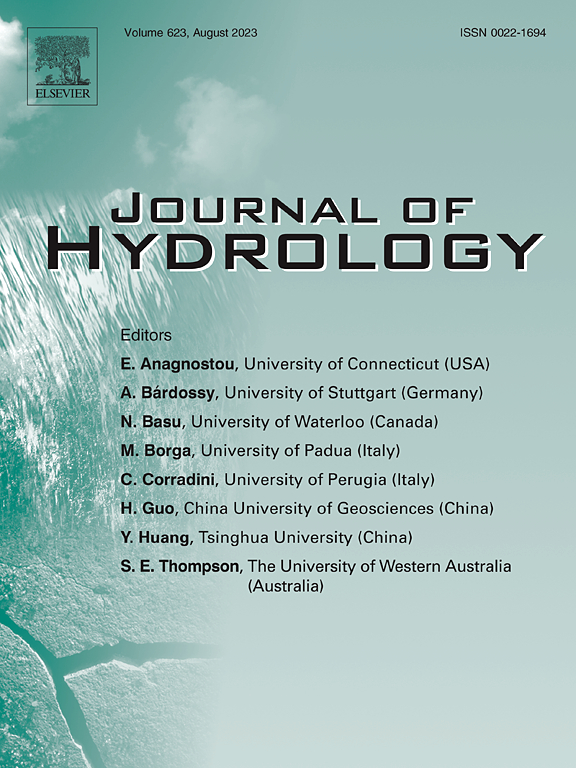优化水资源税政策方案,实现三重红利
IF 6.3
1区 地球科学
Q1 ENGINEERING, CIVIL
引用次数: 0
摘要
在一个社会经济系统中,水消耗、碳排放与经济发展密切相关。以往的研究表明,水资源税可以实现节水,但可能对经济发展产生负面影响。由于社会经济部门之间的密切关系,水资源税的实施将在整个经济系统尺度上改变节水、碳减排与经济增长之间的权衡关系(即三重红利)。为了在整个经济系统的尺度上实现红利,我们建立了一个可计算的一般均衡模型,将水资源税政策与税收再投资措施相结合。进一步,我们将该模型与优化模型相结合,以确定理想的不同策略。我们以中国用水量大、碳排放高的省份河北省为例进行研究。研究发现,水资源税通过回收收益为生产部门和家庭提供了红利,可以同时实现碳减排、节水和经济增长,从而实现“三重红利”。本文章由计算机程序翻译,如有差异,请以英文原文为准。
Optimization of water resource tax policy schemes to achieve triple dividends
In a socioeconomic system, water consumption, carbon emission, and economic development are closely related. Previous studies suggest that water resource taxes can achieve water conservation, but may impose negative impacts on economic development. Due to the close relationships among socioeconomic sectors, the application of water resource tax will change the trade-offs among water conservation, carbon emission reduction, and economic growth (i.e., triple dividends) at the scale of the whole economic system. To achieve dividends at the scale of the whole economic system, we established a computable general equilibrium model to combine the water resource tax policy with tax revenue recycling (reinvestment) measures. Furthermore, we combined the model with an optimization model to identify ideal different policies. We used Hebei Province, a region in China characterized by substantial water consumption and high carbon emission, as a case study. We found that the water resource tax provided a dividend by recycling revenue to benefit production sectors and households, and could simultaneously achieve carbon emission reduction, water conservation, and economic growth, thereby achieving triple dividends.
求助全文
通过发布文献求助,成功后即可免费获取论文全文。
去求助
来源期刊

Journal of Hydrology
地学-地球科学综合
CiteScore
11.00
自引率
12.50%
发文量
1309
审稿时长
7.5 months
期刊介绍:
The Journal of Hydrology publishes original research papers and comprehensive reviews in all the subfields of the hydrological sciences including water based management and policy issues that impact on economics and society. These comprise, but are not limited to the physical, chemical, biogeochemical, stochastic and systems aspects of surface and groundwater hydrology, hydrometeorology and hydrogeology. Relevant topics incorporating the insights and methodologies of disciplines such as climatology, water resource systems, hydraulics, agrohydrology, geomorphology, soil science, instrumentation and remote sensing, civil and environmental engineering are included. Social science perspectives on hydrological problems such as resource and ecological economics, environmental sociology, psychology and behavioural science, management and policy analysis are also invited. Multi-and interdisciplinary analyses of hydrological problems are within scope. The science published in the Journal of Hydrology is relevant to catchment scales rather than exclusively to a local scale or site.
 求助内容:
求助内容: 应助结果提醒方式:
应助结果提醒方式:


